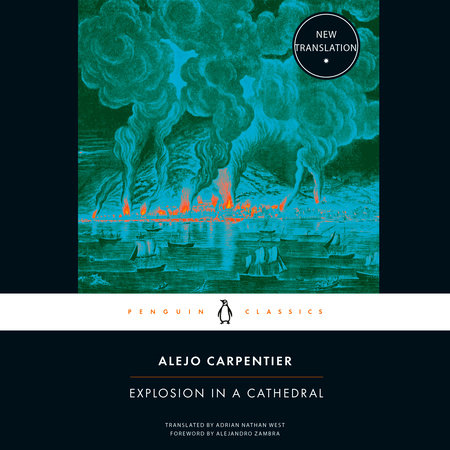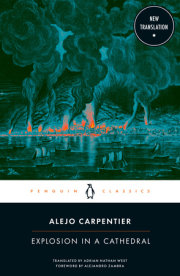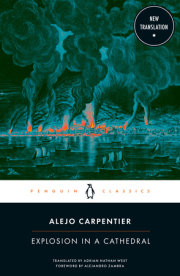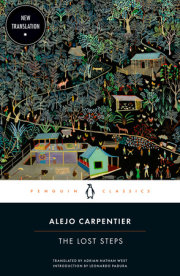“A tour de force . . . built around the exciting and timely theme of revolutionary-turned-tyrant.” —The New York Times Book Review
“Penguin Classics has recently published sensational new translations of two of Carpentier’s novels, The Lost Steps (1953) and Explosion in a Cathedral (1962). . . . What made them influential, and makes them so dazzlingly readable still, is their style. . . . Needless to say, this marriage of style and subject would be illegible to English-language readers without a first-rate translator, and in Adrian Nathan West, Penguin Classics has found their man.” —The Wall Street Journal
“Carpentier’s novels are full of luscious descriptions of nature. . . . His descriptions of food and drink are exquisite. . . . [With] a sure feel for voice and cadence . . . West lovingly restores the eccentric sweep and florid detail of the novel, better conveying the grandness of Carpentier’s vision . . . West’s translation is sensitive to his humor and irony, and the reader is borne happily along through the thickets. . . . What the reader takes away overall from West’s translation is a freshness and bite and aesthetic ambition that match Carpentier’s.” —Natasha Wimmer, The New York Review of Books
“A foundational text of the Latin American ‘Boom’ has at last been translated directly into English. . . . West’s translation is agreeably fast-paced. . . . He is faithful to Carpentier’s ornate style and . . . generally reproduces the gravitas of the Spanish original. . . . [There is] hope that our contemporary re-examination of slavery, colonialism and European liberalism will give Explosion in a Cathedral new relevance in the English-speaking world. Readers . . . should be grateful for this belated new version.” —The Times Literary Supplement
“The most remarkable translating feat I encountered in 2023 comes courtesy of Adrian Nathan West, who in The Lost Steps and Explosion in a Cathedral brings the almost orgiastically baroque prose of Alejo Carpentier into glorious English.” —Sam Sacks of The Wall Street Journal, via Twitter
“Remarkable for its intelligence conjoined with the tragic sense of life, a bleak masterpiece that rightfully stands alongside the works of Joseph Conrad and V. S. Naipaul, and is far superior to the much more famous fantasies of that other Castro favorite, Gabriel García Márquez . . . The grace and energy of [this translation] are of a high standard.” —The Bulwark
“In rich prose adorned with magical flourishes, Explosion in a Cathedral . . . touch[es] on still-reverberating themes of discrimination and racism, corruption and power, and the pursuit of self-determination versus the influence of former colonial powers.” —Americas Quarterly
“Thanks to a new superb translation by Adrian Nathan West—the Gregory Rabassa of our day—a long overdue spotlight has been redirected on Carpentier’s literary significance and what Explosion in a Cathedral still has to say about the validity of revolutions and the perils of political corruption. . . . A new translation of this political critique . . . could not come at a better time. The themes of corruption, power abuse, and discrimination seem just as relevant now as they did for the culprits of revolutions two hundred years ago.” —Sounds and Colours
“The beauty of Carpentier’s prose can never be emphasized enough, and here it rises to incredible levels. . . . Explosion in a Cathedral is a novel that . . . has never finished saying what it has to say. . . . Read today, some sixty years since its original publication, at the end of a pandemic, amid wars and totalitarian governments and a radical climate crisis . . . [it] continues to accompany us, to question us, to challenge and move us, and ultimately to help us in the arduous and terrible exercise of reading the world.” ―Alejandro Zambra, from the Foreword







